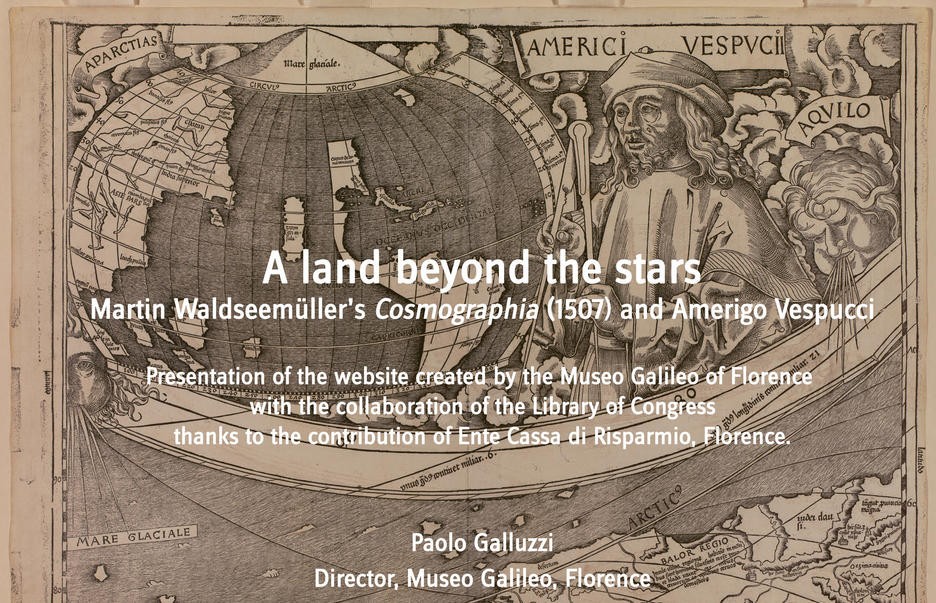Presenting the innovative new website built in cooperation with the Library of Congress, Galluzzi will discuss the site's exploration of Martin Waldseemüller's 1507 map —the oldest one to use the name “America” (honoring navigator Amerigo Vespucci).
Waldseemüller’s Universalis Cosmographia is one of the most important cartographic productions of the modern age; the only known copy, long believed lost, was found in the library of the castle of Prince Johannes von Walburg-Wolfegg in 1901. Purchased by the Library of Congress of the United States in 2003, it is displayed in the Thomas Jefferson Building in Washington, D.C. To make public the map’s wealth of historical, technical, scientific and geographic data, the Museo Galileo with the Library of Congress developed an innovative website launched this week.
Paolo Galluzzi is the Director of the Museo Galileo (Istituto e Museo Nazionale di Storia della Scienza) in Florence, and a member of the Royal Academy of Science in Stockholm and Socio Nazionale of the Accademia Nazionale dei Lincei. He is the author of more than 250 publications on the scientists and engineers of the Renaissance, on aspects of science during the Renaissance and the Scientific Revolution, on scientific terminology, on Galileo and his school, on the history of European scientific academies, and on the historiography of science. He has also created numerous innovative digital publications and tools to promote the public understanding of crucial issues of the history of science and technology.
Co-sponsors: Library of Congress; Ente Cassa di Risparmio di Firenze; Italian Cultural Institute of New York.
